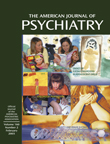Omega-3 Fatty Acids for Depression in Pregnancy
Ms. A was a 34-year-old married woman who came to our psychiatric service for a recurrent depressive episode at the 24th week of pregnancy. She had had a first major depressive episode 5 years earlier, when she was pregnant with her first baby. Ms. A did not receive any drugs, and the depressive episode remitted 9 months after childbirth. She had another two major depressive episodes between these two pregnancies, and she responded well to paroxetine, 20 mg/day.When she came to our hospital, Ms. A refused antidepressant agents because of possible teratogenic effects and took only lorazepam, as needed, for insomnia. She did not have any history of substance abuse or any significant medical condition that might account for her depression. The results of laboratory tests (CBC and blood chemistry) were within normal limits.Ms. A signed our informed consent form and began to take 4 g of ethyl eicosapentaenoic acid (EPA) and 2 g of docosahexanoic acid (DHA) per day, beginning in the 25th week of gestation. She was rated with the 21-item Hamilton Depression Rating Scale at every visit: weeks 0 (before EPA-DHA supplementation), 2, 4, 6, 10, and 18 (6 weeks after delivery).Ms. A did not have any change in score between weeks 0 (Hamilton depression scale score=28) and 2 (score=29) but showed improvement in depressed mood, anhedonia, feelings of worthlessness, hopelessness, and guilt at week 4 (score=18) and experienced the disappearance of suicidal ideation at week 6 (score=10). After that, only initial insomnia and anxious feelings bothered Ms. A occasionally (week 10: score=6). She received paroxetine, 20 mg/day, after delivery, and her condition has remained stable (week 18: score=7). The baby was delivered and appeared normal in a general physical and neurobehavioral examination at birth.
References
Information & Authors
Information
Published In
History
Authors
Metrics & Citations
Metrics
Citations
Export Citations
If you have the appropriate software installed, you can download article citation data to the citation manager of your choice. Simply select your manager software from the list below and click Download.
For more information or tips please see 'Downloading to a citation manager' in the Help menu.
View Options
View options
PDF/EPUB
View PDF/EPUBLogin options
Already a subscriber? Access your subscription through your login credentials or your institution for full access to this article.
Personal login Institutional Login Open Athens loginNot a subscriber?
PsychiatryOnline subscription options offer access to the DSM-5-TR® library, books, journals, CME, and patient resources. This all-in-one virtual library provides psychiatrists and mental health professionals with key resources for diagnosis, treatment, research, and professional development.
Need more help? PsychiatryOnline Customer Service may be reached by emailing [email protected] or by calling 800-368-5777 (in the U.S.) or 703-907-7322 (outside the U.S.).

